
MSF and Humanitarian Negotiations for Access in the DRC
Myfanwy James
We were pleased to welcome Myfanwy James, historian and lecturer in Development Studies at the University of Oxford, to present and discuss her thesis entitled “Instruments of Identity: Médecins Sans Frontières and Humanitarian Negotiations for Access in the Democratic Republic of the Congo (RDC)”. The event was prepared and moderated by Michaël Neuman (Crash) with the participation of Dr. Léon Salamu (MSF).
Result of ethnographic fieldwork conducted in North Kivu amongst Médecins Sans Frontières teams as well as an exploration of the organization’s archives, Myfanwy’s thesis analyses the experience of MSF’s Congolese employees who must navigate the complex politics of humanitarian brokerage. What is their role in humanitarian negotiations? How do they balance between one identity and another, as employees of a humanitarian organization and as people immersed in the conflicts that have been affecting the region for decades? What is the specific situation of women?
Myfanwy shows how MSF’s Congolese employees embody the many contradictions that are present in humanitarian work, including the simultaneous need for operational “proximity” while also maintaining adequate distance from daily conflict processes. Her thesis allows us to better understand the everyday practices of security management and negotiations for access conducted by organizations such as Médecins Sans Frontières. This work also comes at a time when inequality and diversity are at the forefront of discussions within the humanitarian sector, and her reflections are essential to understanding issues of “colonial continuities” in humanitarian action.
You can find a chapter of Myfanwy’s thesis in Volume 2: Issue 2 of the Journal of Humanitarian Affairs. A video presentation of her study is also available.
To cite this content :
Myfanwy James, “MSF and Humanitarian Negotiations for Access in the DRC”, 28 juin 2022, URL : https://msf-crash.org/en/conferences-debates/msf-and-humanitarian-negotiations-access-drc
If you would like to comment on this article, you can find us on social media or contact us here:
ContributePast events
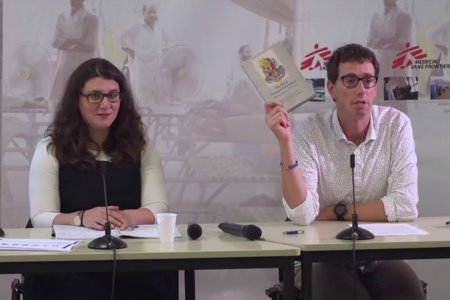 MSF
Conference
MSF
Conference
Humanitarian anthropology : conference with Sharon Abramowitz
10/23/2017 - 06:00 PM 08:00 PMSharon Abramowitz is an anthropologist and a visiting researcher at the Department of Anthropology at Rutgers University, co-editor of recently published Medical humanitarianism. Ethnographies of practice. She has devoted much of her work to responding to epidemics - most recently in Ebola, and in West Africa, Liberia in particular.
During the conference organized by MSF-Crash on 23 October 2017, she discussed the contribution of medical anthropology to humanitarian action as well as her latest book and most recent projects.
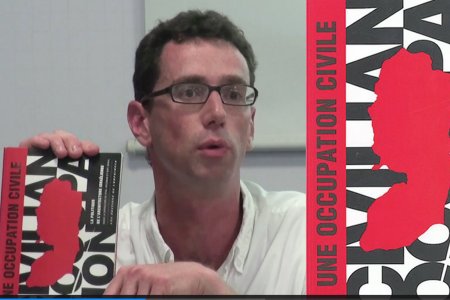 Conference
Conference
Eyal Weizman - Forensic Architecture at work
02/15/2016 - 07:00 PM 09:30 PMEyal Weizman, the founder of « Forensic Architecture » at the Goldsmiths College (University of London) came to present the project as well as a number of his works at a MSF - Crash conference organised at MSF.
 Conference
Conference
The polio eradication campaign put to test
02/04/2014 - 01:30 PM 07:30 PMThe polio eradication campaign has indeniably and remarkably succeeded in tumbling down the number of polio cases worldwide. But difficulties currently faced by the Programme -pockets of social resistance in several countries, reinfection of some countries, outbreak of epidemics associated with strains of vaccine-derived polio viruses- indeed challenge one of the main assumptions underlying the objective of the eradication itself : the full compliance of an entire population to a public health program.
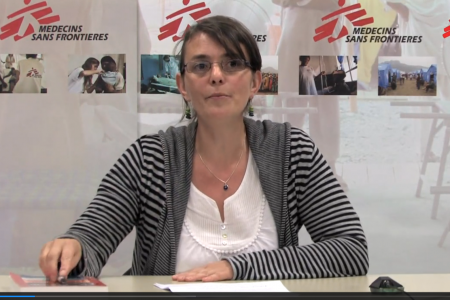 Conference
Conference
Living a Natural Disaster
11/03/2010 - 07:00 PM 09:00 PMPeople wandering through the rubble in Haiti, arms outstretched begging for help amid the floods in Pakistan: the media coverage of disasters invariably features helpless victims, overwhelmed by the disaster, waiting to be helped...
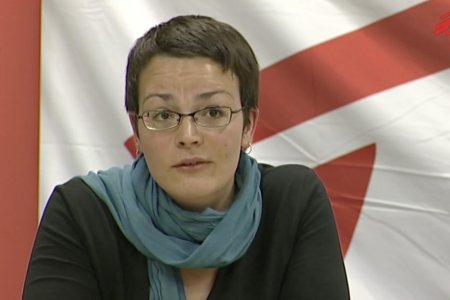 Lena Mucha
Conference
Lena Mucha
Conference
From their point of view
03/10/2009 - 07:00 PM 09:30 PMThe reasons why we are accepted, tolerated or sometimes rejected in the contexts where we work are often obscure. Caroline Abu-Sada and her team of sociology student shed some light on these issues.
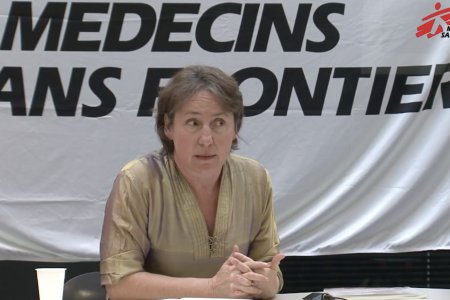 Jacob Zocherman
Conference
Jacob Zocherman
Conference
Grounds for divorce ? MSF and the international criminal court
04/08/2009 - 08:30 PM 10:30 PMIn 1998 MSF decided to support the creation of the International Criminal Court. 10 years later MSF stated that it ‘would not cooperate and would not transmit any information to the ICC'. How can we explain this change of position?
